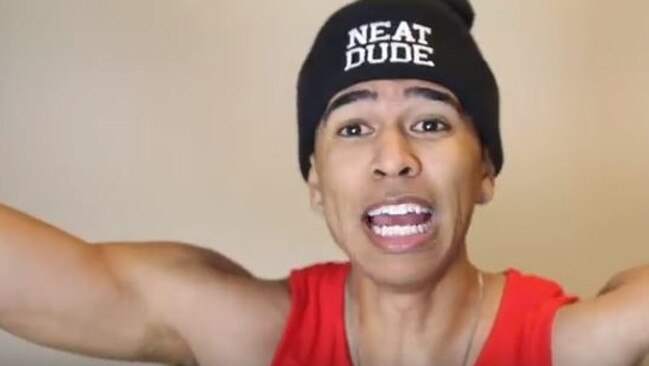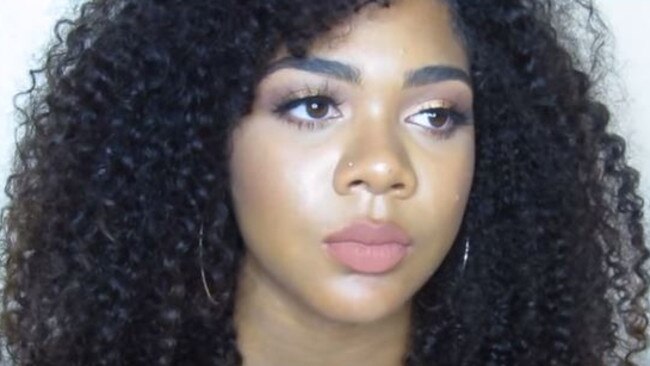Teenagers and the ‘my kidnapping story’ YouTube trend
THIS YouTuber has told a harrowing story of how she was kidnapped at age 12. But she’s one of thousands sharing such experiences, so who is telling the truth?
THEY’VE got all the ingredients of a horror kidnapping: a suspicious van, a shifty stranger, a quiet suburb and a vulnerable teenager.
But experts warn there’s something fishy about many of these narratives, and they could be doing more harm than good.
Search the term ‘my kidnapping story’ on YouTube and 158,000 results are listed. Many are savvy teenagers who dress up their clips with shouty Caps Lock titles and thumbnails featuring colourful fonts and photoshopped images of rope, masking tape and blood.
Vloggers sometimes confess they never told anyone of their ordeal before, but keep things lighthearted by adding background music, graphics and a cheery attitude. Astonishingly, some of these ‘kidnapped’ and ‘almost kidnapped’ clips have attracted views in their millions. And new videos just keep dropping — as do the accusations that the stories are fictitious.
One 19-year-old vlogger from Arizona, Vanessa, has uploaded two clips recounting three separate incidents of being almost kidnapped. Together, the videos have garnered 9.2 million views in a matter of 5-6 months.
She details how an “old creepy van that you see in horror movies” was out to get her when jogging, how when out walking on a dessert track she was followed by a man dressed all in black, and how a skateboarder hounded her all the way home from a Walmart store.
When asked by News Corp about her stories, Vanessa maintained they were all true, but admitted YouTube was swimming in bogus tales as clickbait.
“I created those videos just to tell people my life experiences,” she said.
“I am aware of the flood of fake stories and yes it’s not okay, but because it’s a trend and gets views, people do it to grow their channel. When I did it, it wasn’t a trend so I didn’t expect anyone to really watch.”
Further down the whopping results list, there’s the 13-year-old who felt lucky to be alive after she said she was chased down by a woman ordering her to get in her SUV, the 17-year-old who was followed by a middle-aged man at a fast-food restaurant, the guy who feared for his life when his apparent Dexter-like Uber driver in a “sketchy” white van took him to an unknown alleyway.

But beauty vlogger Asia’s 39-minute video starts with a different, dark tone, revealing how she feels “insulted by the fact people make videos about their ‘fake’ kidnappings or how they were ‘almost’ kidnapped, and I was actually kidnapped’.”
Asia goes onto describe in harrowing detail how as a 12-year-old she was kidnapped and held captive at a Las Vegas hotel for a prostitute ring in exchange for $500. Throughout her narrative, she takes long pauses, appearing to gather herself as she relives her experience. She says pimps shelled out weed and alcohol, renamed her Promise and told her to make them money. She says she was held for several weeks over Christmas before she was freed by police.
Some of the 1.6 million viewers take to the comments section to poke holes in her story, others are supportive.
The Nevada woman, in her 20s, told News Corp she was deeply offended by all the young YouTubers who made “joking videos about almost being kidnapped while giggling throughout” while adding thumbnails with “photoshopped bruises and black eyes”.
“It’s disgusting to make a mockery of this,” Asia said, saying while she did not believe all videos were a sham, she felt a vast proportion were.
“Let’s be honest, girls upload these videos for attention ... It’s pitiful and shameful,” she said.
Like Vanessa, Asia reasserted her experience was genuine but said “it doesn’t bother me that people think my story isn’t true”.
“I decided to share my story after realising just how popular this trend was getting. I wanted to reach out to the real victims who were watching these videos searching for some sort of closure,” she said.
University of Melbourne online behaviour researcher Associate Prof Shanton Chang said the kidnapping stories were a modern version of the age-old crying wolf phenomenon.
It is easy to tell porkies on the web, just look at the recent ‘Phuc Dat Bich’ fake name and the French tourist pregnancy hoax.
“It’s not a new behaviour, it’s just a new channel,” Dr Chang said.

“It’s hard to say which are true kidnapping stories and which are just made up, and it takes a lot of resources to figure that out.”
And with the falsehoods, there was a risk of negative impacts on real victims of crime and on support services, he said, by turning a traumatising experience into entertainment.
“We need to be really careful around this,” he said.
“Unfortunately, you don’t know whether the millions of people are looking at the videos for entertainment, or searching for a support network, and it’s those that I’m more concerned about.”
He said vlogging was really popular among teenagers and they continued to try new ways of attracting attention — telling a kidnapping story might be one of those avenues.
“The cult of the personality ... drives a lot of young people to try to stand out,” Dr Chang said.
He said even if a kidnapping story was genuine, vlogging was not a “healthy” way to share it.
He warned that doing so put you in the line of fire of trolls, and some perpetrators liked to see the emotional results of their criminal actions.
“(YouTube) is not the greatest space to be sharing that information. Young people should be encouraged to seek professional assistance they can trust,” he said.
Dr Chang stressed the urgent need for a solid education on the digital landscape to teach youths about short and long-term consequences at personal and community levels.
“There lacks a school curriculum on digital literacy and good digital citizenship. These are absolutely crucial,” he said.
“Young people need to understand just because you can do something, doesn’t mean you should.”
Twitter: @sopphie
sophie.aubrey@news.com.au



